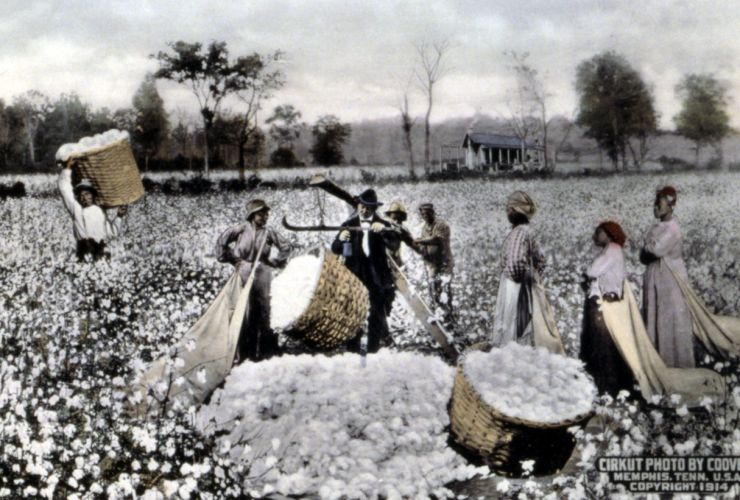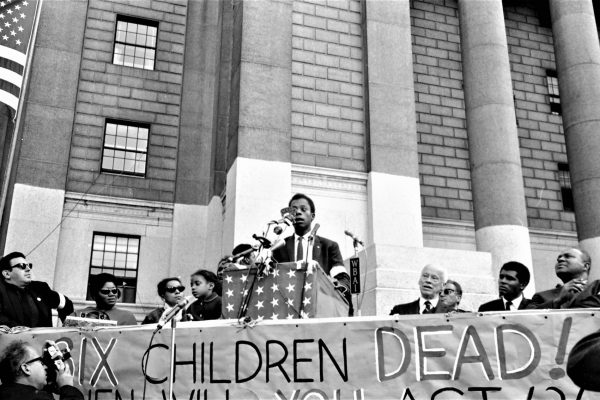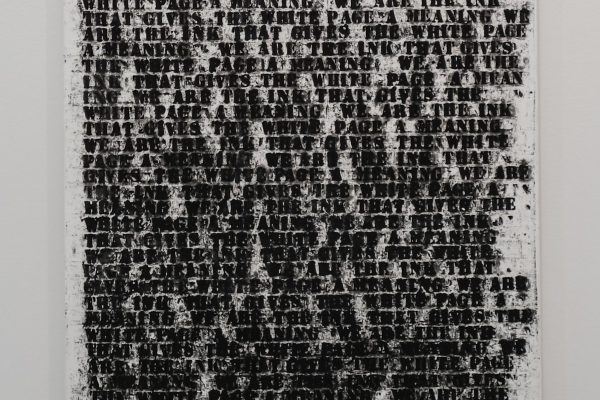Are we not coming more and more, day by day, to making the statement ‘I am white’ the one fundamental tenet of our practical morality?
—W. E. B. Du Bois, “The Souls of White Folk” (1920)
In their erudition, imagination, and generosity, these essays provide ample evidence of the possibilities of political imagination beyond existing limits. So, I must begin by saying: Thank you.
The point of my essay—essay in the old-fashioned sense of “try”—was to attempt to recover a fuller notion of human emancipation, not to dispense with humanism as such. My premise is that a liberal account of human rights—of individual rights, of political rights, and even property rights—has come to dominate a broader humanist conversation about justice. Andrew Zimmerman points the way by quoting Aimé Césaire: “a true humanism—a humanism made to the measure of the world.”
From Peter Linebaugh’s incantory series “Am I Not a Man and a Brother?”, “Ar’n’t I a Woman?”, and “I Am a Man”; to Manisha Sinha’s invocation of African American abolitionists; to Peniel Joseph’s reminder of the Nation of Islam’s claim to be more fully human than whites, these essays map the coordinates of an intellectual history of humanism beyond liberalism: the black radical tradition.
Nor was my intention to simply dismiss liberal notions of justice or the long history of human rights, as invoked especially by Sinha but also by Roberto Gargarella. The better historian in my mind believes and wants to argue, along with Karl Marx, that liberal notions of justice, the rights of citizenship and human rights, are the summary moral achievements of the modern world. And yet: they provide only a foreshortened version of a thoroughgoing human emancipation. The fact that they have provided an indispensable resource for justice seekers of all sorts does not mean that we need to trim our imagination to the existing limits of the standing order. As Donna Murch argues, that order is all too quick to assert that the “identity” claims that emerge out of the history of settler colonialism are provincial hang-ups that stand in the way of liberal universalism.
I want to return to Murch’s emphasis on U.S. settler colonialism, but I first need to finish the thread about human rights and “dehumanization.” For better or worse, my argument was focused on the untheorized attribution of liberal, crypto-human-rights thinking to enslaved people: the collapse of “agency,” liberalism, and the question of enslaved people’s humanity into a tautological loop running endlessly through the historiography of slavery. Describing the actions of Nat Turner and Harriet Jacobs as equivalent episodes of the history of “agency,” “freedom,” or “human rights” is misleading. Indeed, doing so conscripts the history of slavery to a truncated version of the history of freedom (i.e., behind every resistance lies liberal agents expressing their full humanity and trying to regain their rights). In a longer project, I would have gone on to consider the ways anti-slavery frequently exceeded (or specified) the terms of liberal freedom, and then continued up through the history of the black radical humanism (and even the black liberal humanism) evident in so many of these responses.
Still, I think I would be critical of the notion that slavery “dehumanized” enslaved people. The ample usage of the terms “human,” “man,” and “woman” in anti-slavery texts does not in and of itself suggest that the terms of domination, exploitation, and resistance that characterized the daily lives of the enslaved were framed around the question of whether or not enslaved people were human beings. It might make good political sense to invoke a normative notion of humanity to critique injustice, whether or not one’s own status as—or self-confidence in being—fully human has ever been threatened. And, even against the authority of Karl Marx by way of Grace Lee Boggs by way of Peter Linebaugh, I continue to think that we have more to lose by employing the word “dehumanization” than we have to gain from it. First, because it is sucked too easily into the culturally dominant notion of redress through human rights. Second, because it is too sticky: it leaves a trace of abjection on those it (sincerely) seeks to celebrate, advance, and protect. As Joseph puts it, it frames black history as a “never-ending audition” for humanity. I would rather begin with the way capitalism converts dead labor into living capital—transforming human beings through the simplification, instrumentalization, and eventual exhaustion of their capacity.
Along with Samuel Moyn, I would also still insist on a discontinuity between the inspiring historical profusion of black radical (and even liberal) humanism cited in these essays and the contemporary, culturally dominant notion of human-rights liberalism that my essay seeks to transcend. Notwithstanding the efforts of generations of black radicals to arraign the United States before the assembled authority of the United Nations, the efficacy of human rights claims has generally been outside the boundaries of the United States. Beyond the border: human rights, global justice, humanitarian intervention, and war crimes. Within the border: “race relations,” “law and order,” capital punishment, mass incarceration, police violence, and impunity. The terrific breadth and variety of the black radical tradition as outlined in these pages represents a history and a political imaginary greatly in excess of human rights. It is precisely that discontinuity—the fact that the notion of human rights institutionalized in contemporary global governance does not descend from nor respond directly to the history of slavery, anti-slavery, and black radicalism more generally—that makes me want to insist that it should.
This historical discontinuity often causes quite diverse justice claims to be lumped together under the rubric of human rights. As Peter Hudson and Murch suggest, racial capitalist exploitation, white supremacist justification, and radical resistance take different shapes in different settings. Think of the different histories that underlie the struggles of our own recent past: the reparations claimed by the Movement for Black Lives; the (counter-)sovereignty defended by the Standing Rock Sioux; the sanctuary demanded by our undocumented neighbors. Each claim emerges out of and reflects, in mirror image, a specific history of economic exploitation, racial domination, and sexual invigilation: slavery, expropriation, casualization; Negro, Indian, Mexican; natal alienation; genocide and re-education; extraterritorialization; sexual vulnerability and violation in every case.
This sedimented history of racial capitalism in the United States, the “coproduction” of capitalist exploitation and racial domination, is exemplified in the essays by N. D. B. Connolly, Joseph, and Murch. And Hudson’s admonition to think of the various aspects of the black radical tradition as arising out of “simultaneous, overlapping” circumstances—“not as mystical power, but as historical-material force”—helps explain why racism and capitalism must be understood as dialectically intertwined: the global operation of capital producing and depending upon differentiated and yet related racial formations all the world over.
Stephanie Smallwood captures the radical implications of this insight, reminding me of something I should have said. There is only dubious utility to any formal definition of capitalism that does not include the slave trade. So many of the most searching analyses of the slavery/capitalism question, including Caitlin Rosenthal’s rich and informative piece, mobilize a host of modifiers—“pre-capitalism,” “primary accumulation,” “merchant capitalism,” “war capitalism,” etc.—to describe slavery as a variant form of capitalism while nevertheless maintaining some conceptual distance between the two. Smallwood turns the question around, insisting that we consider industrial capitalism to be a variant form of racial capitalism: a result of the history that began with the slave trade.
Connolly considers what these questions mean now that Donald Trump is president. As he suggests, much of the analysis in the aftermath of the election has been framed around an adventitious separation of the categories of “race” and “class”: was Trump elected because of the economic anxieties of white people, or because of their racism? Recognizing the racial character of the neoliberal globalism that has undermined the security of much of the American working class—the fact that the global division of labor is also a racial and imperial division of labor—makes plain that the “economic anxiety” felt by many white Americans is ineluctably racial. The jobs they have lost have not simply disappeared: many of them have been relocated to places where labor has been exploited according to terms that are imperial and racial as well as simply economic. The immigrants they fear come not only in search of jobs, but in flight from social disorder created by the long history of U.S. imperial anti-communism and global neoliberal austerity.
As Du Bois wrote in Black Reconstruction (1935):
Indeed, the plight of the white working class throughout the world today is directly traceable to Negro slavery in America, on which modern commerce and industry was founded, and which persisted to threaten free labor until it was partially overthrown in 1863. The resulting color caste founded and retained by capitalism was adopted, forwarded and approved by white labor, and resulted in subordination of colored labor to white profits the world over. Thus the majority of the world’s laborers, by the insistence of white labor, became the basis of a system of industry which ruined democracy and showed its perfect fruit in World War and Depression.
Lamentably, Trump’s success suggests that white—and especially white male—vulnerability is once again expressing itself as racial entitlement, rather than embracing the alternative path: away from fear and toward the more secure society for all offered by the black radical tradition. The once-again renounced covenant of Reconstruction and the promise of what Du Bois termed “abolition democracy” points us back to Marx: “Labor cannot emancipate itself in the white skin where in the Black it is branded.”
This forum is featured in Race Capitalism Justice, now available in reprint. Order your copy today.








